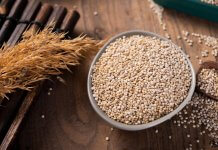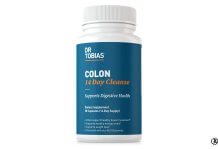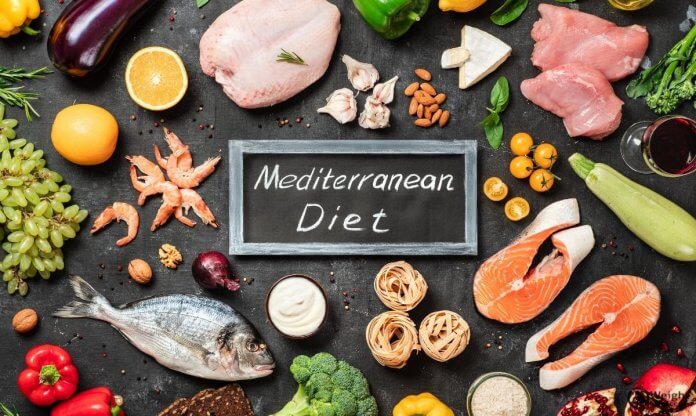I get commissions for purchases made through links on the site. As an Amazon and Clickbank Associate I earn from qualifying purchases. Learn more.
For over five decades, the Mediterranean diet has remained at the top among all other diets in the world. It involves an eating pattern characterized by fruits, whole grains, vegetables, olive oil, and legumes. Eggs, poultry, and fermented dairy products may also be consumed but in limited amounts. Red meat should be avoided as much as possible; pork or poultry may be used as substitutes.
The benefits of the Mediterranean diet go beyond the prevention of some dietary diseases such as heart problems, cancer, diabetes, and hypertension to general benefits including good mental health, good mood, and consequently a significantly longer life. A little wine is also recommended after meals.
This guide outlines the various tips that rule the Mediterranean diet. It includes the food and drink to consume and in what proportions and those which to avoid. To give you a reason to follow the tips, or rather to motivate you into getting started with the diet, you’ll find the benefits of the Mediterranean diet discussed in detail right below.
But first, why the name “Mediterranean”? Let’s dive a little into the background of the Mediterranean diet.
Table of contents
What is the Mediterranean diet?
The Mediterranean diet may be defined as a diet that reflects a pattern as seen in southern Italy, and the greater Greece region in the 1960s. According to the dietary data collected during the times, people around the region recorded longer lifespan and lowest rates of dietary disease, all of which were attributed to diet observed at those times. Recent scientific research has enforced the previous finding, noting that people who currently follow such dietary patterns tend to have a similarly long life and reduced risks of dietary diseases.
- The Mediterranean Diet Plan 30-day Challenge – It is a personalized meal plan created according to an individual’s food choices and weight loss goals. It gives over 120 delicious recipes all put together into a 30-day meal plan, with the parts and nutrition categorization done for you.
Tips to get started with a Mediterranean diet
Speaking of tips to get started into this diet, the idea is to imitate the healthy diet as seen with the traditional Mediterranean regionals. Here are some of the tips to do so:
1. Let fruits and vegetables take the better part of your meal
Instead of sausage and pepperoni, consider peppers and mushrooms for your pizza. Fruits and vegetables are key components of the Mediterranean diet. Start taking a larger portion or more servings of fruits and vegetables. For example, focus on at least 2 servings of vegetables for lunch and dinner and 2 servings of fruits per meal.
Always think of simple ways to incorporate fruits and vegetables into your meals. For example, add some spinach to your meat, taking a fruit like an apple as a snack instead of crackers, and even having avocado as part of your sandwich. For dessert, eat fresh fruits as opposed to ice cream or cake.
2. Seek to consume more whole foods than processed foods
The traditional part of the Mediterranean diet does not recognize processed foods. You should select food with 1-3 whole food ingredients like oats. The real Mediterranean diet involves eating fresh, wholesome food.
3. Use olive oil instead of butter for cooking
Mediterranean diet advocates for the use of good fats when cooking. Virgin olive oil, avocados, nuts, and sunflower seeds are perfect healthy fats to incorporate into your meals. It emphasizes eating healthy fats and less saturated and trans-fats. This explains the reason why olive oil is the main fat source in the Mediterranean diet. Using healthy fats is the ultimate way to lower your cholesterol levels and thus improving your heart health.
4. Eat fish instead of red meat
Fish such as tuna and salmon are good sources of omega-3 fatty acids that are essential for brain development. It also minimizes cholesterol levels and reduces inflammation. White meat such as fish is highly recommended for its health benefits as compared to red meat.
5. Consider friendly dairy products
It is recommended that you limit your consumption of saturated fat to not more than 10% of your daily calories. It means you can still enjoy your unprocessed dairy products such as cheese and plain or Greek yoghurt.
6. Consider consuming whole grains at the expense of refined grains
Whole grains make up the core of the diet. Instead of white rice and pasta, consume whole grains like barley and bulgur. The Mediterranean diet is all about eating healthy and staying healthy. Whole grains have many benefits including reducing cholesterol levels in the body, stabilizing blood sugar, and significant impact on weight loss. They are also rich in Vitamin B and fiber necessary for the proper digestion process.
7. Eat legumes moderately
Legumes such as beans, lentils, and peas are a good source of protein. Plant protein is often considered healthier compared to animal protein such as meat. Replace red meat with legumes for they reduce your susceptibility to heart disease.
8. A little wine will take you a long way
If it is well with your doctor, drink red wine in moderation. For men, 1-2 glasses per day are recommended, for women 1 glass per day is enough. Wine is known to protect against heart disease when taken cautiously. Taking too much of it has adverse effects on your heart.
9. Cook a vegetarian meal once a week
Consider forgoing meat one day a week. Pick any suitable day and instead of having meat in your diet, build meals around vegetables, whole grains, and beans. A vegetarian diet doesn’t have to be boring as many would put it, spice your table a little bit and enjoy a sumptuous meal.
10. Mealtimes should carry a social experience
A huge part of the Mediterranean lies in the food, many people thus often ignore the way Mediterranean’s live their lives. It is not just about eating healthy food for them. Sharing and physical activity is also important. To fully appreciate the diet, there are behavioral changes that you need to make.
While eating, ditch the TV, phone, or computer and rather talk to a friend or family member. It could seem like a simple act but it goes a long way to relieving stress and boosting your mood. Eating with others also minimizes the chances of overeating.
Consider regular family meals, sharing meals with others to expand your social network, and cooking with others.
Benefits of the Mediterranean diet
1. Helps prevent heart disease
Heart disease is often a result of lifestyle activities and diet. The Mediterranean diet emphasizes heating healthy by reducing intake of refined grains, processed food, and taking healthy proteins. The diet is therefore effective in reducing the risk of cardiovascular disease.
2. Reduces risks of Alzheimer’s
Following a Mediterranean eating pattern and behavior may reduce a decline in memory and thinking skills as one gets older. The brain needs a sufficient supply of vital nutrients and oxygen. It, therefore, means people having problems with vascular health are susceptible to issues with brain development manifested by cognitive decline.
The diet may improve healthy cholesterol, blood sugar levels resulting in good blood vessel health and hence reducing risks of Alzheimer’s disease.
3. Increase lifespan
Eating healthy means a significant reduction in risks of lifestyle diseases. This means reducing the risks of death. Such a diet also keeps you agile as you age, chances of developing muscle weakness are reduced.
4. May help stave off and manage type 2 diabetes
Research shows that the Mediterranean diet can be effective in minimizing type 2 diabetes and its related complications. The diet helps improve blood sugar control in individuals managing type 2 diabetes more than high protein and low-carbohydrate diets.
Whole-grain foods are rich in fiber that helps with digestion and helps reduce drastic swings in blood sugar. The same also helps maintain a healthy weight.
5. Reduce risks of Parkinson’s disease
Parkinson’s disease often disrupts motor functions, that use muscle and movement. It is a kind of disorder that is progressive and is a result of insufficient production of dopamine chemicals that regulate movement.
Mediterranean diet includes high levels of antioxidants that protect cells from oxidant stress that could cause damage. This thus reduces the risks of Parkinson’s disease.
6. May help with weight loss and maintenance
Since the Mediterranean diet focuses on whole, fresh foods and physical activity, it provides a safe and sustainable weight loss way. A calorie restriction diet incorporates with the Mediterranean goes a long way to giving results to those seeking to lose weight.
7. Helps to protect against certain types of cancer
A Mediterranean diet meal plan may aid prevent certain cancer types such as breast cancer and colorectal cancer. They also help reduce deaths related to cancer. This is a fact simulated by the high intakes of fruits, vegetables, and whole grains in the diet.
Conclusion
A Mediterranean way of eating is healthful, it is however important that you get to watch your portions and minimize unhealthy foods if you are to benefit fully. When following a Mediterranean pattern, ensure that you doing it in a manner that helps you control your calories. Although there is no one defined Mediterranean diet, focus on fruits, vegetables, healthy oils, whole grains, healthy plant food seafood, and lower animal food. The diet doesn’t have to be expensive to be satisfying, you can simply have an incredibly healthy diet on a budget.




























